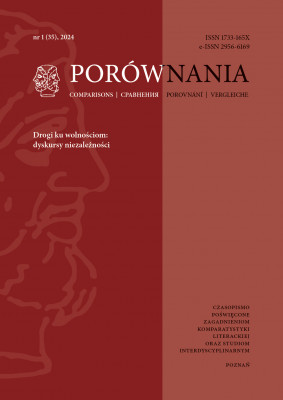Socrates, or a Free Man in Communist Czechoslovakia
The starting point for the research presented in this article is Jan Patočka’s concept of two possible freedom attitudes towards the advantage of the totalitarian regime: Socratic (open confrontation) and Platonic (internal emigration). The first, radical way of practicing freedom is described based on the fate of selected individuals from Czechoslovak culture (Jan Patočka, Jiřy Němec and Eva Kantůrková), whose uncompromising decisions exposed them the risk of death, exile, or imprisonment. The article outlines three most important ideas that guided these figures: truth, spirituality, and will. In the conclusion of the article, the works of Ukrainian literary scholar Oleksandr Boychenko, dedicated to the Socratic approach in the context of Ukrainian opposition, are recalled.
| Article Title | Type | Size |
|---|---|---|
| porownania.35.04.FIRLEJ | [pdf] | [170 KB] |
